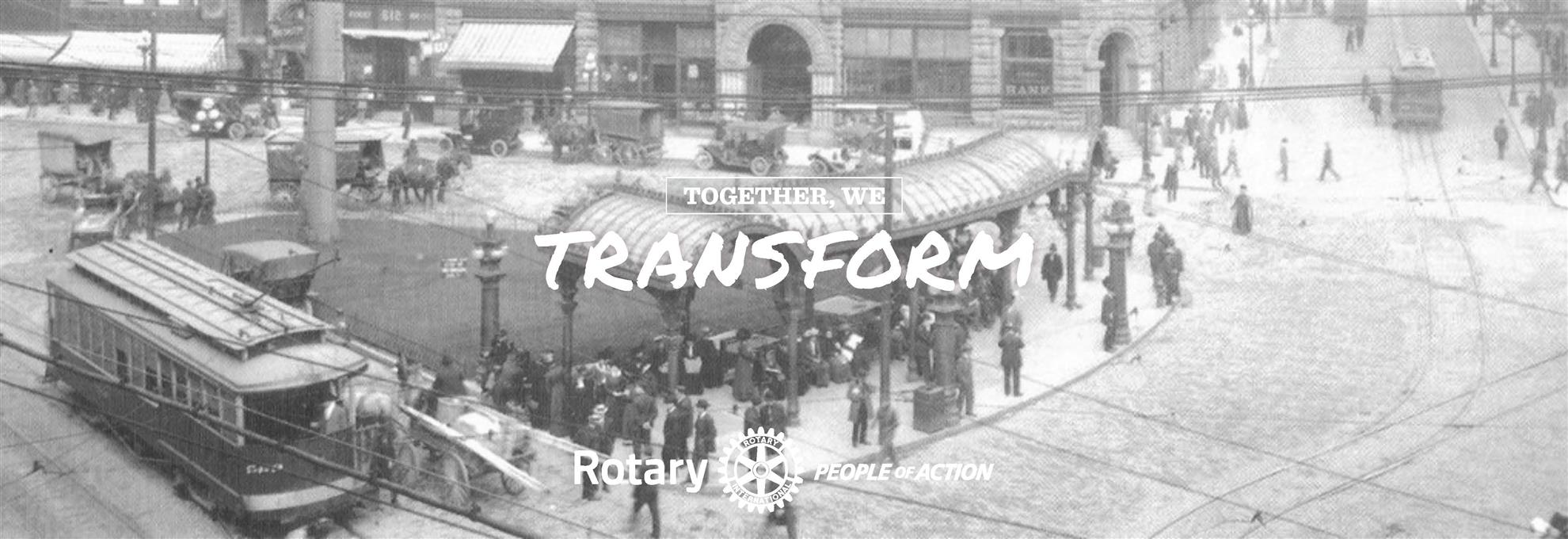Our History

How It All Started
In 1905 a young lawyer named Paul Harris, who was a newcomer to Chicago, thought, “Why not—even in big, bustling, Chicago—have a fellowship composed of one person from each of many occupations, without restrictions as to their politics or religion and with broad tolerance of each other’s opinion?”
That February, Harris met with a coal dealer, a mining engineer, a merchant tailor, a printer, a real-estate agent, and a piano manufacturer. He outlined his plan for mutual cooperation and informal friendship. They soon started “rotating” meetings from one member’s place of business to another. Thus, Rotary was born.
They used first names. They emphasized attendance, fellowship, and cooperation. They soon grew into a diverse membership. The original concept focused on “reciprocity,” meaning helping each other in their businesses with an emphasis on promoting ethical business practices.
Go West, Young Club
Paul Harris started corresponding with Homer Wood, a lawyer in San Francisco who organized club #2 in November 1908, and with Arthur Holman, who founded club #3 in Oakland.
Holman was the San Francisco manager for Travelers Insurance and, in 1909, talked about Rotary to his Seattle counterpart, Roy Denny. The Alaska-Yukon-Pacific Exposition was getting underway. Times were good. Seattle was booming. Denny and others welcomed the Rotary idea.
The founding members met every day for three weeks in May 1909, agreeing on what Rotary should mean and what it should do. Then, on June 15, 1909, nine men met at the Olympus Café and Rotary in the Pacific Northwest was off and running. Within a year there were 85 members.
Planting the “Seed of Service”
Three men emerged as leaders of the new Seattle club—and ultimately of the Rotary movement. They were Roy Denny, the insurance man who at 31 became the club's first president, Jim Pinkham, a 27-year-old lumber wholesaler, and Ernst “Ernie” Skeel, a 28-year-old lawyer.
At the initial national meeting in Chicago in 1910, Skeel helped draft Rotary’s first constitution. He said: “Reciprocity, in the largest sense, means not just getting but also giving. We should be willing to give our time and money to ideas which uplift our people.”
Thus, the seed of service – a seed that has grown and flourished over the past century, was planted in Rotary.